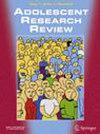Evidence for Targeted and Universal Secondary School-Based Programs for Anxiety and Depression: An Overview of Systematic Reviews
Abstract
While there are a number of systematic reviews on school-based mental health programs, there appears to be heterogeneity in their overall findings and conclusions, possibly due to the tendency to combine evidence from primary school and high school programs. To investigate the evidence for the effectiveness of targeted (for specific groups) and universal (for all students) mental health programs delivered in secondary schools, a systematic review of systematic reviews was conducted. A systematic search for reviews published from 2015 included outcomes for depression and anxiety—the most common mental health conditions—and quality appraisal of original studies in majority secondary school settings. A total of 395 references were screened and 14 systematic reviews were included. Of reviews that were assessed in full, most were excluded for not clearly separating studies in secondary school settings from primary school settings. Findings were generally positive but heterogenous in terms of quality and long-term outcomes. Interventions were mainly based on cognitive behavioural therapy (CBT), with results showing that targeted interventions are generally effective in the short-term for both anxiety and depression, while universal programs may be effective in some situations, typically in the short term and when programs were CBT-based; where reviews focused on universal resilience programs there were no significant effects. The overview shows a need for systematic reviews focused on secondary school settings, which consider contextual and individual factors that can influence the implementation and effectiveness of programs.

 求助内容:
求助内容: 应助结果提醒方式:
应助结果提醒方式:


